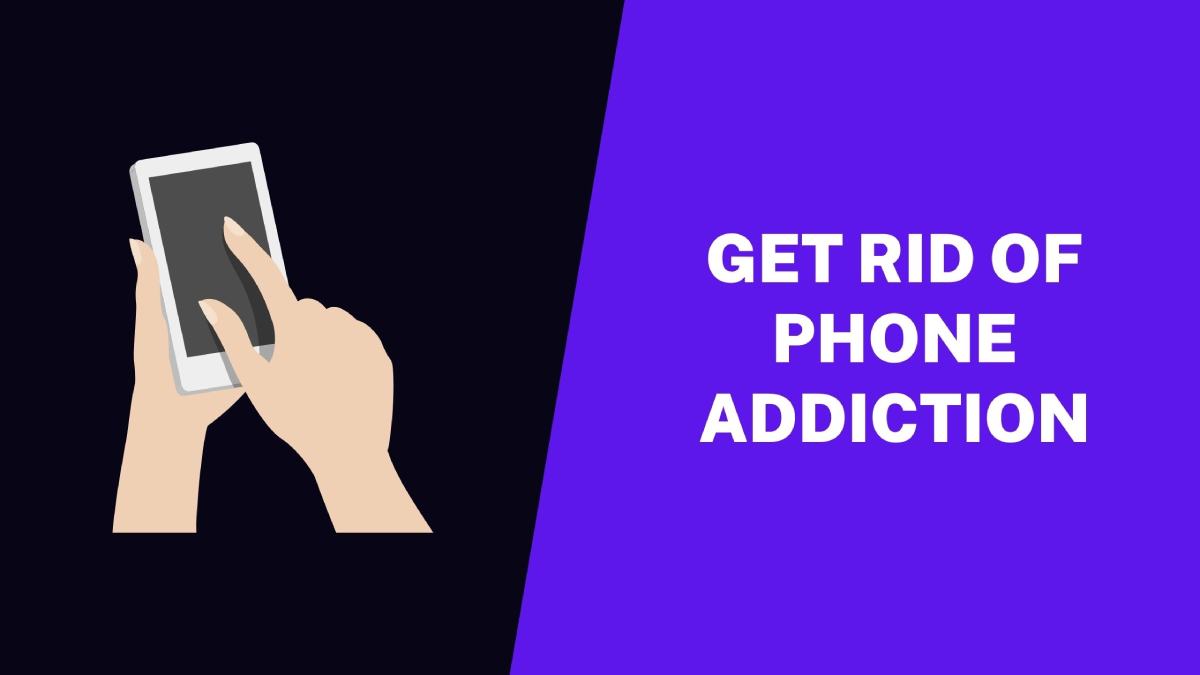Modern people’s lives are inextricably linked with technology – smartphones, computers, tablets, and other gadgets. But these devices themselves would not be so important for a person if they did not have access to the Internet.
It’s completely ok when a student asks for help with essay writing from professional services like Writingapaper to go out with friends and have some high-quality time. However, it is not ok when someone is stuck all the time on their smartphone.
The Internet is something that no human day can do without. It’s convenient, understandable, and fast, but it’s also dangerous because it makes you addicted. One becomes addicted to the phone (instead of “phone” one may mean the Internet). We found out what phone addiction is called, why it occurs, whether it can be overcome, and what this addiction leads to if treatment is neglected.
Signs of Nomophobia
If you constantly check the notifications on your phone (even when there are no alerts) and you do it while talking to your family or friends, you will likely have a phone addiction. In scientific circles, this is called nomophobia, from the English phrase “no mobile phone phobia,” which implies addiction to the Internet and phone. People affected by this disorder feel stressed when there is no phone around. And not just stress – a person can be seized by panic fear.
A state of panic when the battery runs down or the Internet traffic ends most often associated with a sense of uselessness and loneliness. Such people put a deeper meaning in the gadget and become attached to it than real people.
The consequences of nomophobia are pretty typical: a person ceases to prioritize their life adequately, their value system changes, they can no longer enjoy life, and depression begins to develop.
Other symptoms of nomophobia
Panic fears and depression are neglected cases of nomophobia, which in real life are pretty rare. This addiction often occurs in a milder but no less dangerous form for mental health.
The gadget is always with you, and you can’t live without it for a minute. You take your phone with you always and everywhere, even to the bathroom. It is in your hands all the time, and if it is in your pocket or bag – you endlessly check it.
Craving for new information. This can manifest itself when you do not let the phone out of your hands and all the time checking for new notifications, trying to quickly answer a message and not miss anything from the dense stream of information.
You hide from the outside world, tucked away in your phone. Then, during an uncomfortable situation for you, you start texting someone, calling, or just checking social media. This is comparable to an ostrich that hides its head in the sand in times of stress.
Depends on the appearance of the device. For example, some people changed their cell phones when the previous one broke. And some people update their gadgets every year to stay “on trend” with the latest smartphone model in their hands. In addition, such people want to decorate their gadgets with additional accessories to stand out from the crowd and emphasize their social status.
Hallucinations. This is the most serious sign of phone addiction. A person may think that they heard the sound of a cell phone when the phone didn’t ring or was turned off at all. Some people may develop call mania on this basis. If you let “hallucinations” take hold of your mind, the situation can escalate to panic attacks.
Causes of addiction
Nomophobia, like all disorders, doesn’t just happen. It takes causes. Addiction is not about pleasure. Otherwise, many people would be addicted to chocolate. According to the researchers from the best dissertation writing service, addiction occurs when we are trying to relieve psychological stress to cope with some problem – a sense of loneliness or inability to change life for the better.
Psychologists identify several causes of mobile addiction:
Inability to communicate. People who can not or are afraid to communicate in person are most often subject to mobile addiction. Such people tend to be driven by complexes. During an online conversation, you don’t have to look the other person in the eyes, choose words for your conversation and watch your gestures. Just keep your phone handy.
Problems. Phone addiction occurs when a person has a problem they are afraid of or don’t want to solve. The Internet and social networks become an imaginary way out of difficult situations and an opportunity to hide from problems.
Personal complexes. Insecure people like to communicate more online because no one sees them or knows how they look. So, on the one hand, a person is ashamed of their ” shortcomings,” and they feel more comfortable communicating virtually. But on the other hand, they can not make their own decisions and take responsibility.
Boring life. Mobile addiction is peculiar to people whose life has no vibrant events. Instead, they prefer the Internet, where they can be anyone and do anything, adding risk to their lives.
Sense of Need. Calls, messages, and notifications make a person feel needed and important. If in normal life they are lonely, the visibility of rambunctious communication on the Internet gives them a sense of social relevance.
How to fight phone addiction?
If you realize that the cell phone is an important part of your life and you can’t spend even a minute without it, it’s time to think about it. Maybe you have a psychological addiction. So, it is necessary to begin to solve the appeared problem. Of course, it is much easier to cope with mobile addiction than with drugs or alcohol. But it doesn’t mean that you should apply fewer efforts. The main thing – do not despair, then you will be able to become a truly free and happy person.
Find the reasons. Give yourself time and analyze your life. Think about what’s bothering you. If you have difficulty communicating with people offline, or if your phone is an escape from the problems and escape from reality, then you better contact a psychologist. A professional can help you become more open, communicative, and responsible.
Find a hobby. If you realize that your life is not quite bright and exciting in the process of self-analysis, some new business could help you. Sign up for some club, take up swimming, painting, music, dancing, or something else. If you can spend more time outdoors, visit exhibitions, go to museums, movies or theaters. This will be much better than living the illusion of an interesting life through the Internet.
A lot of notifications are not a sign of importance. Don’t take a lot of notifications as a sign that someone needs you. Once you disappear from the web for a couple of days, there are far fewer notifications. Substitutes show up quickly in the virtual world. Those who are listed as your “friends” online may not be.
Change your group of people. If you do not feel comfortable around people around you, try to change your social circle. A bad environment ruins good habits. For example, if your friends are looking at their phones, even when talking to you, you will eventually do the same thing anyway.
Uninstall apps. To overcome your phone addiction – clean your phone by deleting all unnecessary apps. This way, you’ll spend less time on your phone.
Allocate your time. Allocate time for quality communication with friends and family. Appreciate real life, not virtual life. Remember about healthy eating (meals, by the way, are better prepared by yourself) and physical activity. All of this takes time, which you can take away from your phone.
If you have children and your child spends a lot of time on the phone, try to keep them busy with important and inspiring activities. Talk to them and together choose a hobby that is interesting to them. Let your child feel that you need them and love and appreciate them. Spend more time with them, talk to them, help them solve their problems, and then they will be happy to leave the Internet web and find happiness in reality.
Ways to overcome it
Fear of being without a phone and dependence on it is more typical for young people because they are familiar with the device almost from childhood and are much more active in their use. However, many people do not recognize the presence of such an addiction. It is worth noting that any addiction becomes a restriction – it drives a person into a framework from which, over time, it becomes more and more difficult to get out.
Give up the phone gradually. Start with a small: at bedtime, put the phone away from you so that the device will not be an object that you will see first in the morning. Then develop a new habit – refuse to use the phone in the bathroom. It is worth doing, at least for practical reasons: you can drown it. Finally, stop carrying the phone around the apartment – let the gadget lie quietly in one place.
Don’t take your phone out of your bag or pocket at work or school. Likewise, try not to take it in your hands during meetings with friends or at the cinema. Firstly, you will show yourself as a mannered person, and secondly, you will become closer to your goal.
There is another way – try to turn off the phone for a while in your free time. Alternatively – turn off the notification sound, and use it only for calls. This way, you won’t miss an important call and won’t be distracted by every notification.
Also, try to get information in different ways. For example, you can get a recipe for the soup from relatives or family cookbooks. It will be more convenient to watch a movie or TV show on a big screen, and you can use the computer to read the news. The main thing is to find a variety of alternatives, because it doesn’t make sense to change your phone for a tablet, for example. You’ll only shift your focus and get a new addiction – to another gadget.
Or find a screen time counting feature on your smartphone and start just using your phone less often. Reducing your time by 30 minutes is already a result you can improve on later.
Conclusion
The constant need to check your phone may be the first red flag that helps you realize you need to make a change in your life. Perhaps if you start spending less time on your gadget, you’ll develop new interests, finally get to meet friends in real life, read a new book, or start exercising again.







